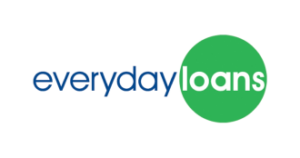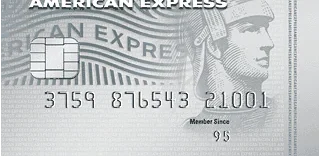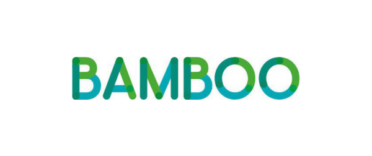 Choosing the right lender can be tricky prospect, especially if you are concerned that your application may be rejected. You can use our series of independent loan provider reviews to find the lender offering the right product for your financial situation. Here we take an in-depth look at Everyday Loans, a company that claims to offer loans to a wide range of different types of borrower. We will take you through the key features of Everyday Loans, assess whether it could be the right choice for you and explain how to apply.
Choosing the right lender can be tricky prospect, especially if you are concerned that your application may be rejected. You can use our series of independent loan provider reviews to find the lender offering the right product for your financial situation. Here we take an in-depth look at Everyday Loans, a company that claims to offer loans to a wide range of different types of borrower. We will take you through the key features of Everyday Loans, assess whether it could be the right choice for you and explain how to apply.
What is Everyday Loans?
Everyday Loans is a direct lender that provides personal loans to borrowers with a broad range of credit profiles. This means you may be approved for a loan even if you have a less-than-perfect credit history. A key differentiator for Everyday Loans compared with many other lenders is the fact that it has a network of branches across the country and new customers will have to visit a branch to complete their loan applications. You can find details of your local branch on their website.
| Loan amount range | £1,000 - £15,000 |
| Loan term range | 18 - 60 months |
| Representative APR | 99.9% |
| How to apply | Online, but applications must be completed in person at an Everyday Loans branch |
What are the key features of Everyday Loans?
- Loans between £1,000 to £15,000 repayable over 18 to 60 months
- Representative APR of 99.9%, although the APR ranges from 19.9% to 299.8%, subject to status
- Operates through a nationwide network of branches
- Considers applications on a case-by-case basis and is suitable for those with impaired credit history
What types of loan does Everyday Loans offer?
Everyday Loans provides unsecured personal loans, which can be used for "almost any purpose", excluding business use, gambling or illegal activities. The fact the loans are unsecured means you don't have to use your property or car as collateral for the debt, which reduces the risk if you don't make the repayments. However, if you persistently miss payments, you can expect the loan will be passed on to a debt recovery agency and you could be taken to court.
Everyday Loans specialises in offering loans to people with poor credit history who may struggle to secure finance elsewhere. Its loans can also be used to consolidate existing debt.
For details on alternative types of loans available from other lenders, read our article 'Which is the best type of loan for you?'.
How much can I borrow with Everyday Loans?
Borrowers can apply for loans of between £1,000 and £15,000, although the amount you can borrow is determined by how much you can afford to pay back monthly. The repayment period is between 18-60 months, with a longer period providing lower monthly payments but meaning you will repay significantly more in interest over the term of the loan.
How much does a loan from Everyday Loans cost?
Everyday Loans advertises a representative APR of 99.9%, although the maximum APR it charges is 299.8%. This is considerably higher than for the vast majority of personal loans, even those designed for people with poor credit.
In the representative example provided on its website, someone borrowing £3,000 over 24 months with a loan with an APR of 99.9% would repay a total of £5,706, £2,706 of which would be interest. The actual APR, loan amount and repayment period is determined by your individual circumstances.
Am I eligible for a loan from Everyday Loans?
In order to be approved for a loan with Everyday Loans, you need to:
- Be over the age of 18
- Earn at least £10,000 per year
- Be a UK resident
Everyday Loans is set up to service the needs of those with poor credit scores and will consider each case on its own merits, so you won't automatically be turned down if you have made financial mistakes in the past. A key factor is whether you can afford to make the repayments and, as such, you will need to prove your income, as well as showing evidence of your usual monthly outgoings.
Should you take out a loan with Everyday Loans?
If you have a branch local to you and you have a complicated financial history, Everyday Loans might be worth considering for a loan up to £15,000. However, the high level of interest you are likely to have to pay on the loan means it is a relatively expensive way to borrow money and, therefore, you should only consider taking out a loan if you really need to. Depending on the amount of money you need, you may want to consider a secured loan or credit card, as they could potentially work our cheaper.
How do I apply for a loan from Everyday Loans?
You can start your application process online, which will give you a conditional offer based on a soft search of your credit file with the main credit reference agencies. This search won't impact your credit rating and won't be visible to other lenders. However, in order to complete your application, you will need to visit your local branch where you will have a meeting that lasts for up to 45 minutes.
You will need to take the following documents to your face-to-face meeting:
- Proof of identity, like a passport or driving licence
- Proof of address, like a bank statement or utility bill
- Evidence of your income and outgoings, such as payslips, bank statements and tax returns
The point of the in-person meeting is to enable Everyday Loans to assess your creditworthiness based on a number of different factors, rather than simply based on your credit reports. It does, however, make it a more time-consuming process than with many other lenders that allow you to complete the entire application online.
Can I repay my loan from Everyday Loans early?
Everyday Loans doesn't charge fees for repaying your loan early. Instead, you can request a settlement figure that will detail the outstanding balance of the loan as well as any interest that has accrued. You can then choose whether you want to settle the debt early.
Is Everyday Loans safe?
Everyday Loans is authorised and regulated by the Financial Conduct Authority (FCA), which means borrowers have access to the Financial Ombudsman Service and Financial Services Compensation Scheme. This offers protection if things go wrong.
As with many other lenders, the FCA has advised that there are "clone firms" that are pretending to be Everyday Loans in order to scam customers. Both Everyday Loans and the FCA advises borrowers to consider carefully whether unsolicited communication they receive purporting to be from Everyday Loans is genuine before providing any personal details. There are details on how to report a clone firm on the FCA's website.
Everyday Loans review: The pros and cons
Here is a summary of the key pros and cons of applying for a loan from Everyday Loans.
Pros of Everyday Loans
- Everyday Loans takes a broader view in its assessment of creditworthiness, which means you may get approved for a loan even if you have been turned down elsewhere
- The fact that there are branches adds a personal touch to the process, with advisers more easily able to help people apply for and manage their loan in a way that best suits their personal circumstances
- Everyday Loans has good reviews and is praised for its customer service
Cons of Everyday Loans
- The APR is higher than average, with the representative APR of 99.9% meaning you are likely to have to pay back almost as much in interest as on the original loan amount
- Having to visit a branch to complete the loan application may be off-putting for some people, particularly if it means having to travel some distance to your nearest branch
Everyday Loans customer reviews
Everyday Loans is highly rated by its customers, according to independent review site Trustpilot. It scores 4.5 out of 5.0 stars, based on 5,000 reviews, with 84% of respondents classifying the firm as "excellent". The positive reviews centre on the fact the advisers are friendly and helpful and the application process is straightforward. However, a further 10% of those surveyed believe Everyday Loans is "bad", with most of the criticism based on applicants being approved online but then turned down after the face-to-face meeting in a branch.



